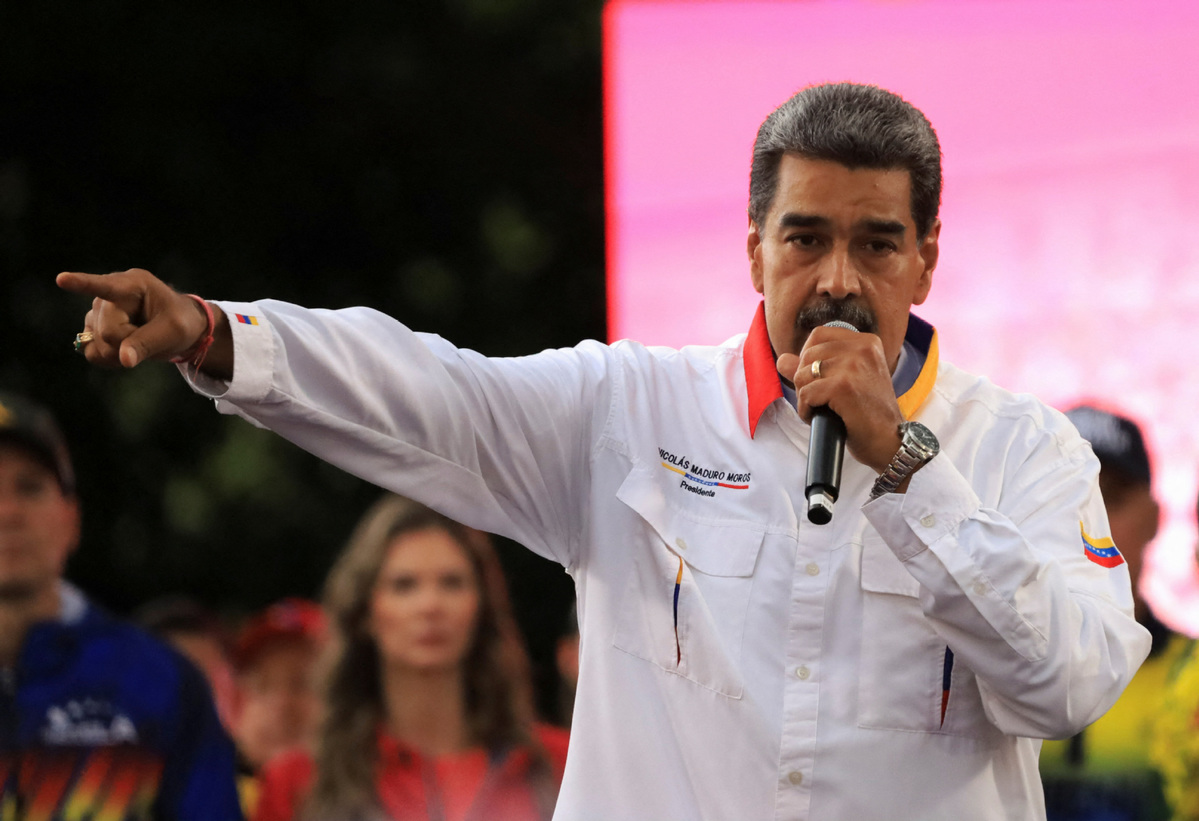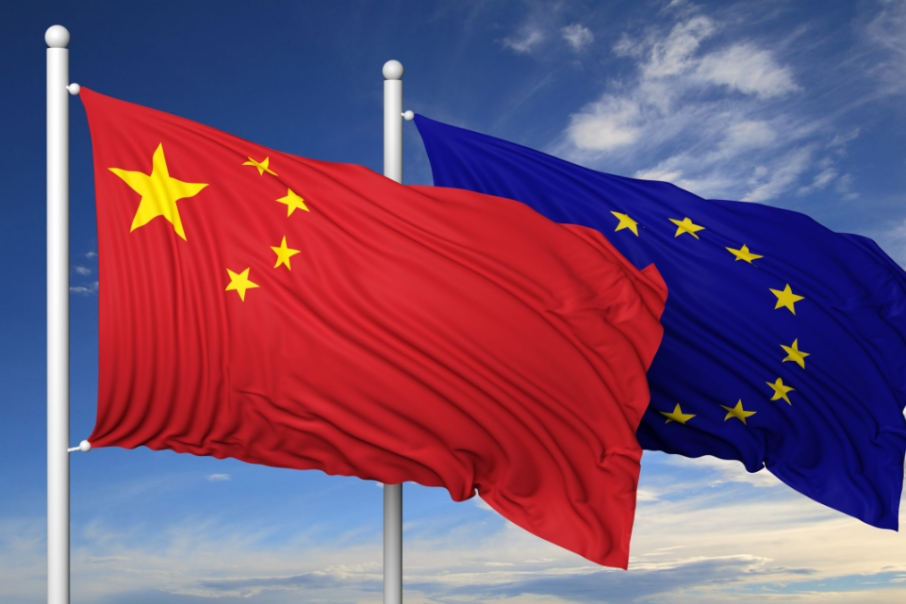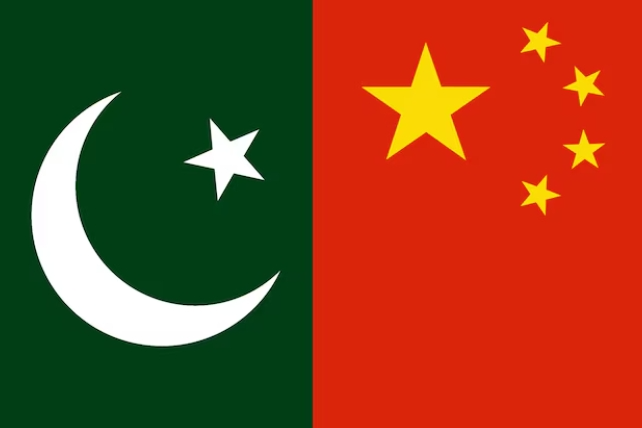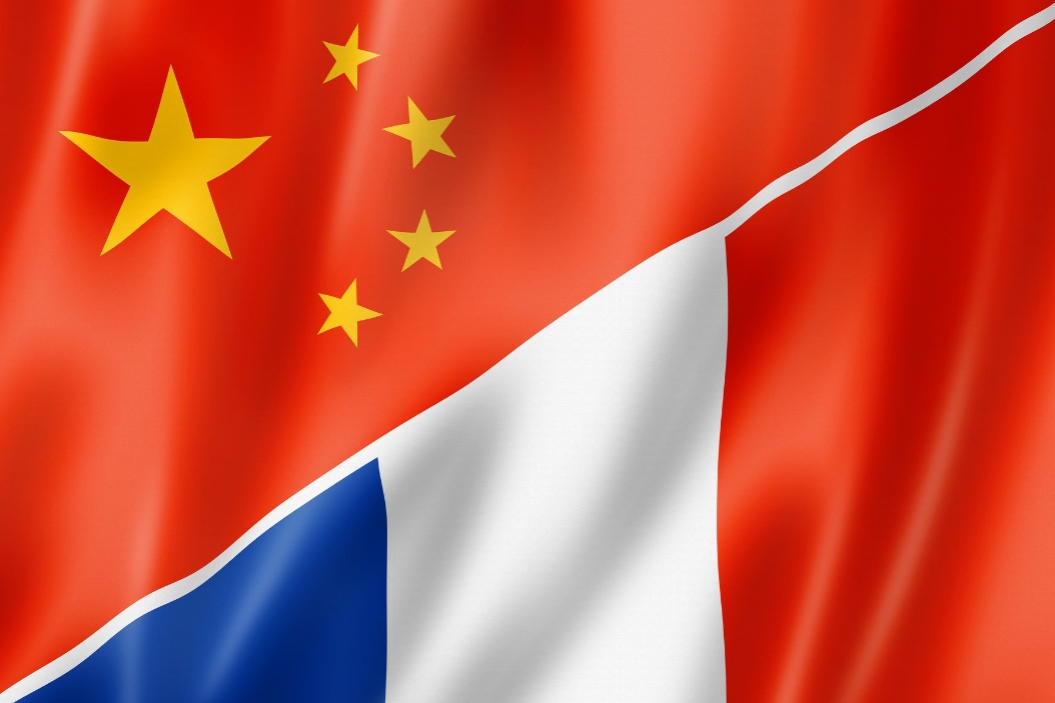Maduro to focus on growth of Venezuela


Venezuela's President Nicolas Maduro is set to begin a third six-year term with a focus on maintaining the country's growth momentum of the past few years and overcoming the negative effect of sanctions imposed by the United States.
"People did not trust the opposition in the election and knew who was responsible for the sanctions," Maduro said on Thursday. "Venezuela has broken hyperinflation and managed to stabilize the dollar exchange rate for months."
The National Electoral Council on Saturday reaffirmed Maduro as the winner of the presidential elections held on July 28, with about 97 percent of the votes tallied.
Meanwhile, Mexico's President Andres Manuel Lopez Obrador said on Friday the recent US position on Venezuela's elections was "reckless" and renewed his call for the international community to avoid interventionism.
In a news conference, Lopez Obrador said statements such as the one made by US Secretary of State Antony Blinken on Thursday do not help resolve electoral disputes. Blinken has claimed opposition candidate Edmundo Gonzalez Urrutia received the most votes in the election.
After a few difficult years, Venezuela shifted back to growth from 2021. In 2022, real GDP expanded by 8 percent and added another 4 percent in 2023, according to the International Monetary Fund. Maduro has predicted growth would hit 8 percent this year.
Venezuela has the tools at its disposal to ramp up growth, including the largest oil reserves in the world, but US sanctions have curbed its ability to trade its oil in international markets, curbing production and causing underinvestment, experts said.
Since 2015, Venezuela has had 932 sanctions and seven US executive orders leveled against it and "this does not rule out the possibility of more so-called sanctions", said Vladimir Adrianza Salas, a professor and researcher at Venezuela's National Centre for Historical Studies.
Affected by blockade
Franco Vielma, a sociologist at think tank Mision Verdad in capital Caracas, said: "In Venezuela, the economy is fundamentally based on oil exports. Before 2016-17, 92 percent of the foreign currency income was from oil exports, and this inventory of foreign currency dramatically decreased due to the blockade since 2017."
The country returned to growth at the beginning of this decade. "It is estimated that in 2024, the Venezuelan economy will be the fastest-growing in Latin America," Vielma said.
Maduro has put forward a plan for the next five years, the Seven Transformations project, to diversify the economy beyond oil. It aims to "ensure that 95 percent of the food consumed is produced in Venezuela, making the country much less vulnerable to economic and commercial blockades", Vielma said.
Looking abroad, Maduro has called for greater integration into the international system and has expressed an aspiration to join the BRICS.
The writer is a freelance journalist for China Daily.

































